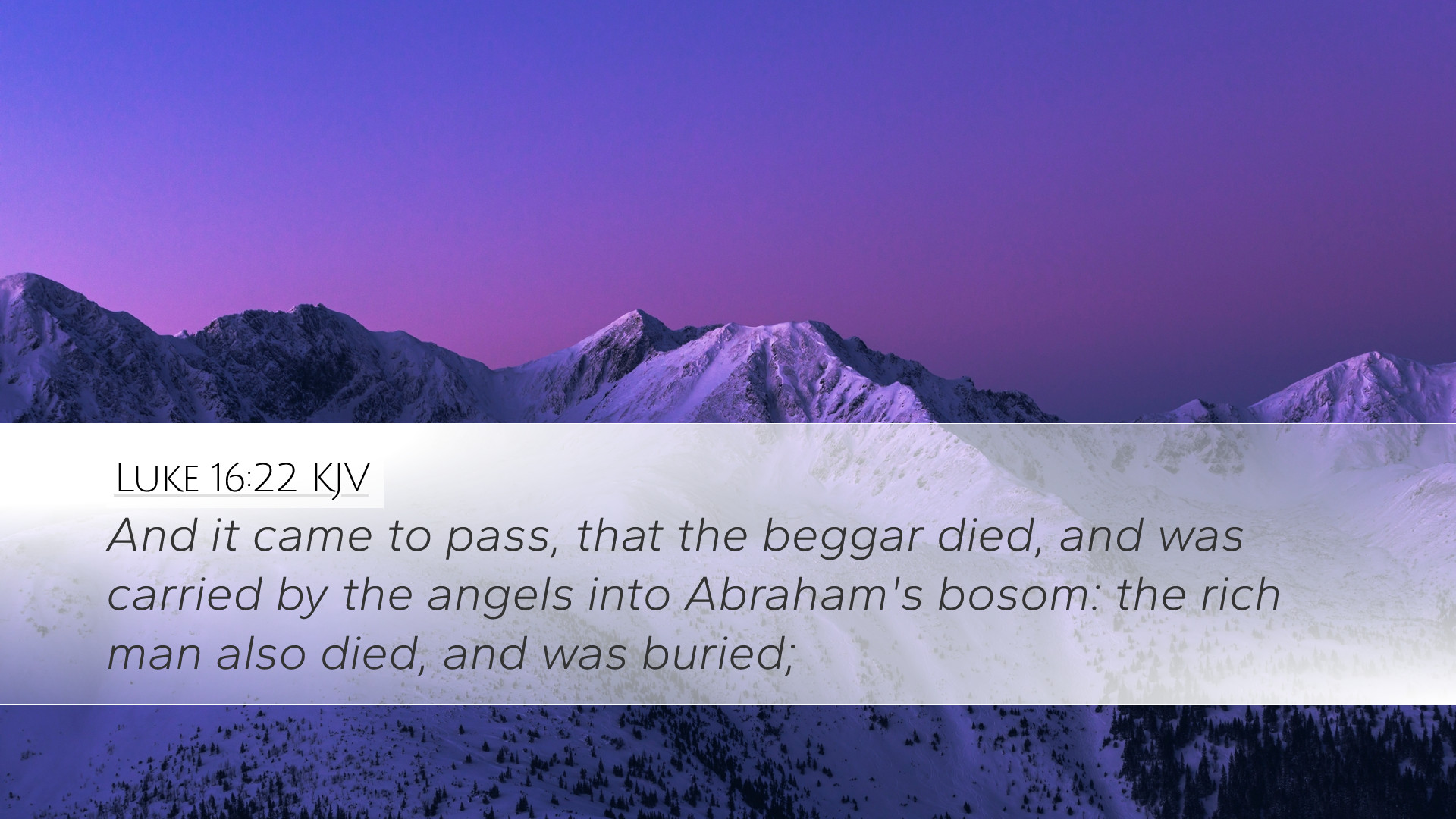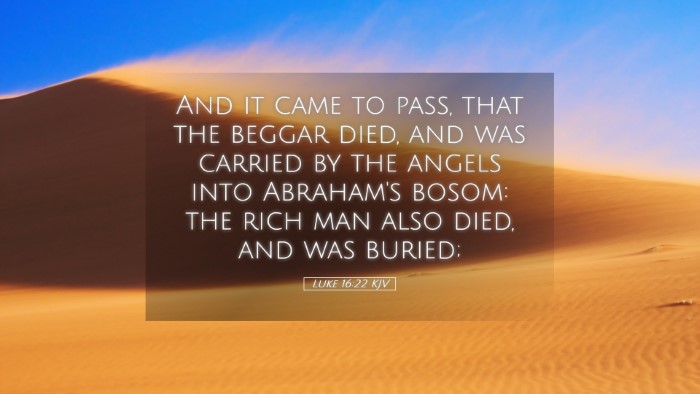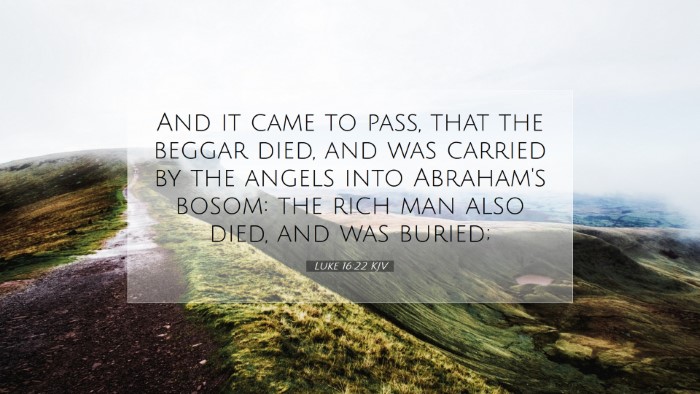Commentary on Luke 16:22
Verse Summary: Luke 16:22 records the moment when Lazarus, the poor man, dies and is carried by angels to Abraham's bosom, highlighting themes of divine favor, the reversal of fortunes, and the afterlife.
Contextual Overview
The surrounding context of this verse is crucial for understanding its implications. In Luke 16, Jesus tells the parable of the rich man and Lazarus to illustrate the stark contrasts between earthly wealth and heavenly riches, as well as the eternal consequences of one’s actions and attitudes in life.
Key Themes
- The Role of Angels: The scripture emphasizes the role of angels in the spiritual journey of believers, acting as ministering spirits to carry the faithful to their eternal reward.
- Abraham's Bosom: This phrase denotes a place of comfort and rest for the righteous dead, serving as a metaphorical representation of heaven and communion with the patriarch Abraham.
- Reversal of Fortunes: The contrast between Lazarus’ experiences in life and the afterlife serves to remind us that God’s justice is ultimately rendered beyond earthly appearances.
Insights from Matthew Henry
Matthew Henry notes the significance of Lazarus being carried by angels. He emphasizes that whilst Lazarus suffered in life, his faithfulness was recognized by God, and the angels' ministry reflects the honor bestowed upon him in death. Henry argues that the presence of angels is an assurance of divine care and protection for believers even unto death, indicating that the faithful are never alone in their transition from this life to the next.
Henry further elaborates on Abraham's bosom as an expression of covenantal blessings and intimacy with God. He draws attention to the affection and warmth of this image, suggesting it contrasts sharply with the eternal punishment faced by the rich man, demonstrating the qualitative differences in their respective afterlives, shaped by their earthly decisions.
Insights from Albert Barnes
Albert Barnes provides a detailed analysis of the phrase "was carried by the angels." He posits that this reflects not only the dignity afforded to Lazarus in death, but also serves to underline the extraordinary providence of God in the lives of believers. He asserts that such divine intervention is a recurring theme in scripture, portraying how God honors those who may appear lowly in human eyes.
Barnes also explicates that being in Abraham’s bosom symbolizes a place of rest and joy. In Jewish tradition, to be in the presence of Abraham signified being in favor with God, reinforcing the theological concept of being united with the faithful who have preceded us in the kingdom of heaven.
Insights from Adam Clarke
Adam Clarke’s commentary provides a linguistic examination of the original Greek terms used in this passage, illuminating the deeper meanings inherent in the depiction of death and afterlife. He notes that the term 'carried' implies a gentle and purposeful action of the angels, suggesting that death is not an end, but a continuation into a place of comfort and reward.
Clarke also emphasizes the moral implications of this parable, warning readers about the dangers of relying solely on temporal wealth. He insists that true richness resides in faith and righteousness, which aligns with the core message of Jesus throughout the Gospel of Luke. Clarke reminds us that the earthly condition of individuals does not dictate their standing in the eyes of God; rather, it is their faithfulness and relationship with God that truly matter.
Theological Reflections
The significance of Luke 16:22 cannot be overstated for pastoral and theological applications. It prompts reflection on the nature of justice, mercy, and the awaited hope of eternal life for believers. The verse serves to encourage those facing trials and poverty, reminding them that their current circumstances do not determine their worth or the love of God toward them.
This passage also invites theologians and scholars to examine the implications of the afterlife as portrayed in Jesus' parables. The portrayal of the afterlife for Lazarus invites a deeper investigation into eschatological themes such as resurrection, judgment, and the ultimate restoration of God’s people.
Conclusion
Luke 16:22 stands as a poignant reminder of God’s love and justice, the solace of angels, and the comfort found in the embrace of Abraham. For pastors, students, theologians, and Bible scholars, this verse encapsulates fundamental truths about faith, divine favor, and the reality of life beyond the grave.


